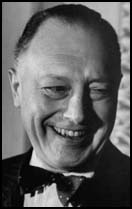[back] Holocaust revisionism

Charles Douglas Jackson
[back]
Holocaust
revisionism
[Was Eisenhower's psychological warfare co-ordinator, where he did an important PsyOp: Human skin lampshades leading to the Holocaust PsyOp. Then a director of Time Life. A perfect example of Mockingbird.]
http://www.spartacus.schoolnet.co.uk/USAjacksonCD.htm
http://www.sourcewatch.org/index.php?title=C.D._Jackson
Human skin lampshades PsyOp
Buchenwald Flyer
Sources
BUCHENWALD A Dumb Dumb
Portrayal Of Evil
First Comes the tie: C. D. Jackson and Political Warfare by Blanche Wiesen Cook
Quotes "The Bilderberg Group, an informal secretive
transatlantic council of key decision makers, developed between 1952 and 1954...
It brought leading European and American personalities together once a year for
informal discussions of their differences... The formation of the American wing
of Bilderberg was entrusted to (Gen.) Eisenhower's psychological warfare
co-ordinator, C.D. Jackson, and the funding for the first meeting, held at
the Hotel de Bilderberg in Holland in 1954, was provided by the Central
Intelligence Agency. Thereafter much of its funding came from the Ford
Foundation... The subjects over which the annual meetings ranged were wide...
but it is clear that the [1957] Treaty of Rome (http://www.hri.org/docs/Rome57/)/ibid
(http://europa.eu.int/abc/obj/treaties/en/entoc05.htm)/ibid (http://www.cerebalaw.com/rome.htm)
was nurtured by discussions at Bilderberg the previous year."
Reproduced from an article by Richard J. Aldrich, Lecturer in Politics at
Nottingham University, in Diplomacy and Statecraft for March, 1997. Dr. Aldrich
is the author of The Hidden Hand: Britain, America and Cold War Secret
Intelligence, John Murray, 2001.[1]
http://www.geocrisis.com/cpr_bildebergers_menu.htm
"Our aim in "cold war is not conquest of territory
or subjugation by force. Our aim is more subtle, more pervasive, more complete.
We are trying to get the world by peaceful means to believe the truth .
That truth is that American want a world at peace, a world in
which peoples shall have opportunity for maximum individual development.
The means we shall employ to spread
this truth are often called 'psychological.' Don't be afraid of that term
just because it's a five-dollar, five-syllable word. 'Psychological warfare' is
the struggle for the minds and wills of men.
Many people think
"psychological warfare" means just propaganda . . .
But propaganda is not the most important part in this
struggle.
The present Administration has
never yet been able to grasp the full import of a psychological effort put forth
on a national scale.
What would such a
peace time or "cold war" national strategy mean?
It would mean, in the first place, the selection of
broad, national purposes and the designation within those
purposes and the designation within those purposes of principles targets.
Then it would mean this:
Every significant act of Government should be so timed
and so directed at a principle target, and so related to other government
actions, that it will produce the maximum effect. It means that our
government in this critical matter will no longer be divided into air-tight
compartments.
It means that, in carrying out a national policy, every
department and every agency of government that can make a useful contribution
will bring its full strength to bear under as co-ordinated program.
We shall no longer have a Department of State that deals with foreign policy in
an aloof cloister, a defense establishment that makes military appraisals in a
vacuum; a Mutual Security Administration that, with sovereign
independence, spends billions overseas. We must bring the dozens of
agencies and bureaus into concerted action under an overall scheme of strategy
..."---Eisenhower, 8 Oct 1952 (Written by CD Jackson)
Other Time-Life-Fortune editors and members of the magazine empire's upper
management shared Luce's politics. Like him, several were also actively involved
with the Radios. The most notable was a man with deep associations to the
Radios: C.D. Jackson. Luce initially hired Jackson as assistant to the president
of Time. Jackson was eventually promoted to vice president of the magazine and
later became president of Fortune. He worked for Time, Inc. for thirty-three
years, heavily cross-dressing between media and politics the entire time. He
took so many leaves of absence from Time for government service that a "Fun and
Games Committee of the C.D. Jackson Hello & Goodbye Society" was established to
arrange coming and going parties for him.
Jackson has been described as a
"virtually unknown and uncelebrated publicist" of twentieth-century style
political warfare. His contributions to America's burgeoning propaganda war
against communism were extensive. Blanche Wiesen Cook calls him "the chief
architect of America's psychological warfare effort during and after World War
II. Like Luce, he never hesitated to use the pages of Time-Life-Fortune to
arouse public opinion, but in his position he had other options available to
him.
As one of five men appointed by the
president to reorganize America's propaganda program, Jackson wielded
considerable control over propaganda directed at people on both sides of the
Iron Curtain. He was fully aware of the CIA's ties to the Radios and recommended
that its cover not be destroyed. If not publicly exposed, the Radios could take
"positions for which the United States would not desire to accept
responsibility."28 The benefits of secrecy were not lost on Jackson: "We can
play tricks, we can denounce, we can take chances, we can act fast, all things
that an official government propaganda agency cannot do."29 Like publishers and
media executives, reporters also became associated with the stations. Some sat
on the Radios' boards; others joined their staffs. In many cases, they knew
about the CIA's connections to the stations and kept silent. The best indication
of this comes from the diaries of William Chamberlin Working for the Christian
Science Monitor, Chamberlin had been one of the first American correspondents to
cover the Soviet Union after the Bolshevik revolution. He remained abroad for
seventeen years, but then returned to the United States and began writing
editorials for the Wall Street Journal. In the 1950s, he accepted a position as
an RL board member. Radio Free Europe, Radio Liberty, the
CIA and the News Media by S Cone